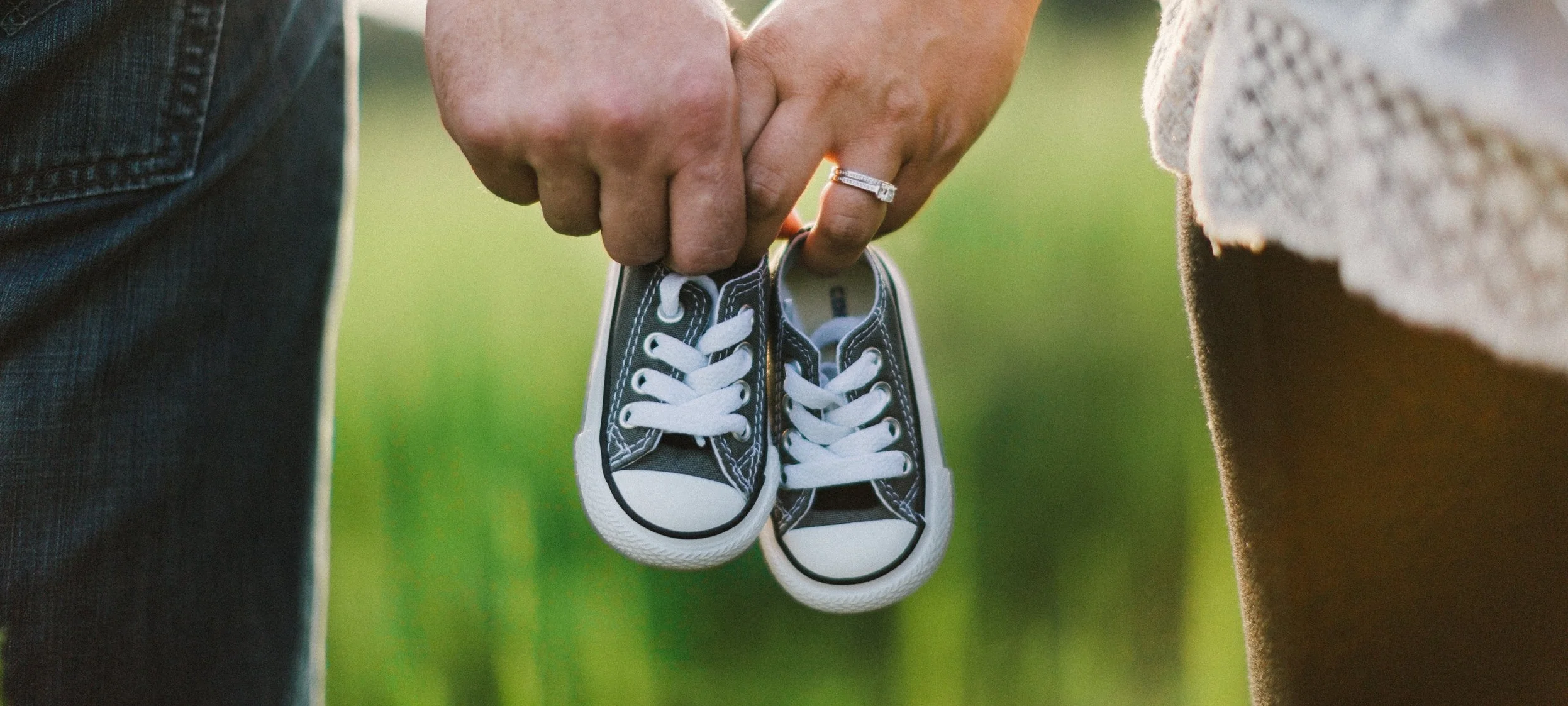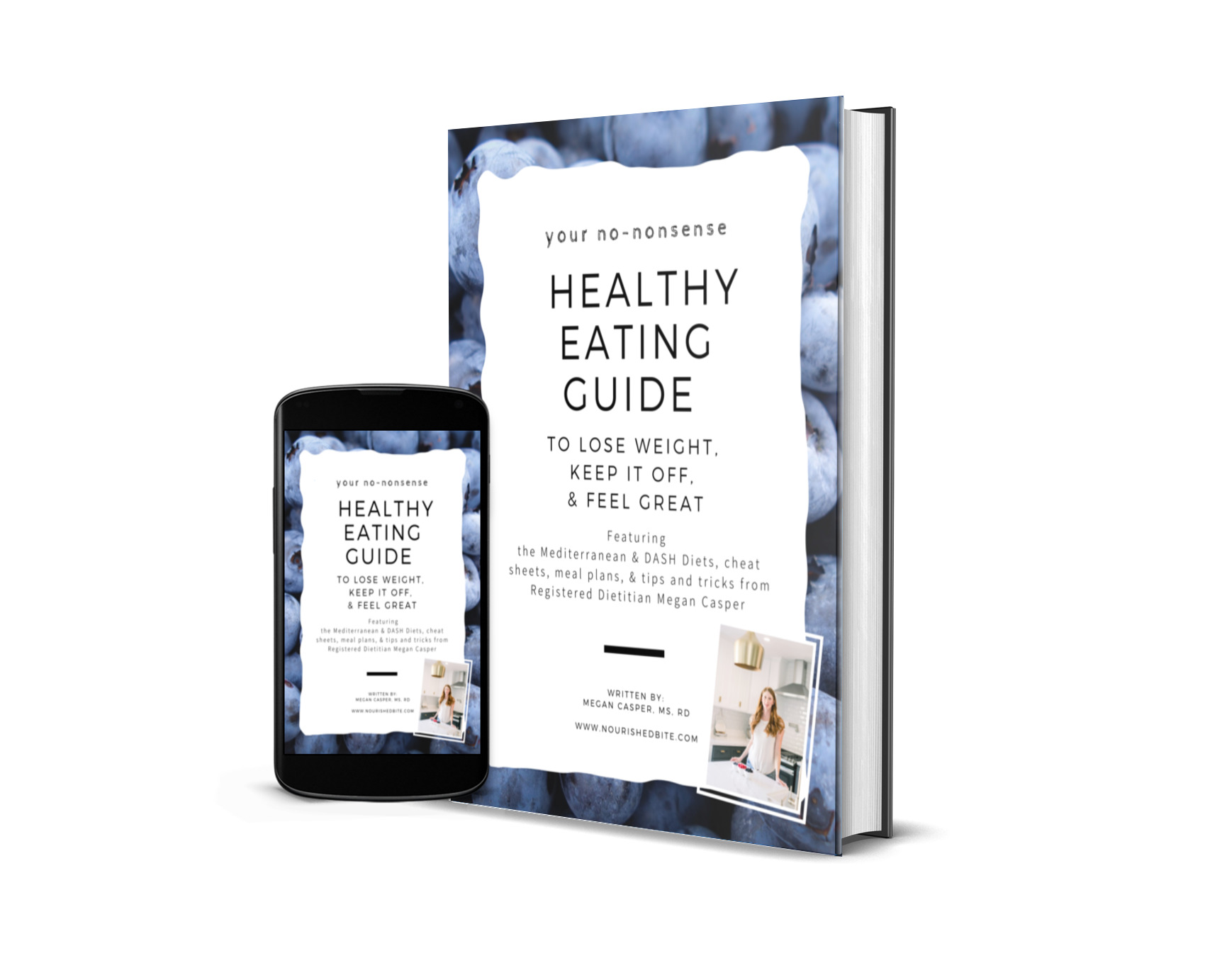6 Healthy Pregnancy Myths - Busted!
/Whether you’re about to try for a baby or are expecting, many women find themselves looking at their diet. Old wives tales and myths abound when it comes to pregnancy. Here are six myths - busted - so you can take care of yourself, and your baby.
Myth: You need to eat for two
This myth is pervasive, and you’ll face legions of well-meaning family members, friends and coworkers offering you goodies once you let them know you’re expecting. The fact is, gaining too much weight in pregnancy puts both you and your baby at risk, upping the risk of gestational diabetes, preeclampsia and a C-section and increasing your child’s risk of obesity and birth defects. While you do need extra calcium, iron, folate, fiber and other nutrients, you actually don’t need more calories until the second trimester. Even then, if you began your pregnancy at a normal weight you will only need an additional 300 calories a day in the second and third trimesters.
Myth: You shouldn’t exercise or start exercising
Back in the day, pregnant women were told to rest and eat up, and even recently it was recommended to only exercise if you had already been doing so. Now things are changing, and pregnancy is considered a great time to introduce healthy habits. Recommendations for pregnant women are the same as for non-pregnant women - 20 to 30 minutes of moderate exercise most days of the week. The list of benefits is impressive: less gestational diabetes, less risk of c-section, less low back pain, less preeclampsia, and lower frequency of urinary incontinence. Women are also less likely to give birth to babies over 8 lbs 13 ounces (called macrosomia), which reduces these children’s risk of obesity later in life. Bonus: exercising may help during labor, and being a strong mama can help your recovery post birth as well.
While exercise gets the green light, there are a few precautions to take. It can be easier to overheat while pregnant, so exercises like long-distance running or exercising in extremely hot conditions should be avoided. Make sure to stay hydrated. Weight lifting is iffy, though it’s generally accepted that you can lift what you did before pregnancy and build slowly if desired. In some women, laying on their backs causes weight to press on major blood vessels, so it is recommended not to do exercises in a supine position. Abdominal exercises, such as crunches, may increase the risk of diastasis recti, when the abdominal walls separate. This occurs in 2/3rds of pregnancies, but it varies in severity. Don’t be scared off by these precautions - the benefits far outweigh the risks!
Myth: You shouldn’t eat fish
Many people, both pregnant and not pregnant, find fish recommendations confusing. You may know that you should go for low-mercury fish, but when you’re standing at the fish counter it can be hard to tell what’s what.
Here’s some good news - one study found that the benefits of eating fish during pregnancy outweighed the risks from mercury. In fact, women in the study who ate 21 ounces of fish a week, way over the 12 ounces currently recommended, had children whose IQ scores were about 3 points higher and had reduced rates of autism. Fish contain omega-3s, like DHA, that are important for brain development in babies, and may reduce the risk of postpartum depression in mamas, too.
Look for low-mercury fish like salmon, cod, shrimp, and tilapia. Avoid swordfish, tilefish, shark, tuna, and other large fish. Remember, the longer a fish lives and grows, the more mercury it accumulates. If you love a tuna sandwich, you’ll be happy to know that canned light tuna has lower levels of mercury than regular tuna, but it’s a safe bet to stick to one can a week. If you’ve never cooked fish and you’re nervous, our Honey Garlic Broiled Salmon and Parmesan Panko Baked Cod are SUPER easy, we promise!
Myth: You need an iron supplement
This really varies from individual to individual. Your OBGYN will test your levels and let you know if you should supplement. About 15-25% of women are anemic while pregnant, according to the American Pregnancy Association. If you don’t have low levels though, iron supplements can cause constipation and nausea, annoyances pregnant women already frequently suffer from. Remember you can find iron in all sorts of foods besides meat, like in leafy greens and fortified cereals. Eating vitamin C at the same time helps you absorb iron from non-meat sources, so add a splash of lemon to your hummus or for a snack eat an orange with a handful of nuts.
Myth: You shouldn’t go on a diet
While it’s ideal to be a healthy weight before becoming pregnant, you can still have a healthy pregnancy if you become pregnant while overweight. Depending on your weight, it may be recommended to gain very little or no weight during pregnancy. Remember, though that babies need glucose and many nutrients to grow, so it’s important to find the right balance. This can be really tricky, so your best bet is to speak to a registered dietitian or your OBGYN so you can get it right. Below is the recommended weight gain, based on your BMI:
- 18.5-24.9 BMI → Gain 25 to 35 pounds
- 25–29.9 BMI → Gain 15 to 25 pounds
- Over 30 BMI → Gain 11 to 20 pounds
Myth: You should cut out caffeine
So far, there are no conclusive studies on the exact levels that are safe during pregnancy. Current recommendations are based off of animal studies that noted increased risk of infertility, miscarriage and birth defects but only when caffeine was ingested in excessive amounts. The American College of Obstetricians and Gynecologists, recommend keeping your daily caffeine consumption under 200 milligrams to be safe, so you don’t have to cut out a cup or two of coffee. A standard 8 ounce cup of coffee contains about 95 mg of caffeine while tea contains about 50 mg caffeine.




